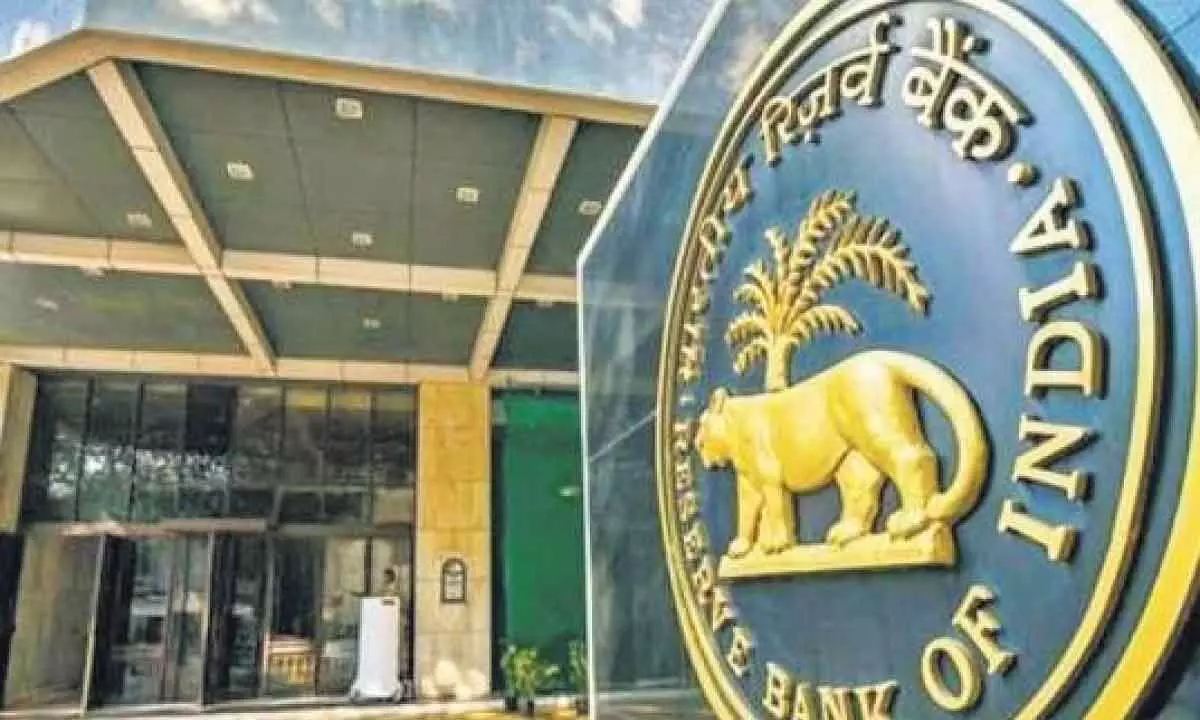RBI fails, retail inflation rises back to 7% in August
India's headline retail inflation rate, as measured by the Consumer Price Index (CPI), returned to 7 percent territory in August from a five-month low of 6.71 percent in July, according to data released on September 12 by the Ministry of Statistics and Programme Implementation.
image for illustrative purpose

India's headline retail inflation rate, as measured by the Consumer Price Index (CPI), returned to 7 percent territory in August from a five-month low of 6.71 percent in July, according to data released on September 12 by the Ministry of Statistics and Programme Implementation.
CPI inflation had fallen to 6.71 percent in July after spending three consecutive months above 7 percent.
CPI inflation has now spent 35 consecutive months above the Reserve Bank of India's (RBI) medium-term target of 4 percent and eight straight months outside the central bank's 2-6 percent tolerance range.
The RBI is deemed to have failed when average inflation is outside the 2-6 percent tolerance range for three consecutive quarters. Having averaged 6.3 percent in January-March and 7.3 percent in April-June, inflation must fall to at least 4.1 percent in September for the July-September average to come in under 6 percent and the RBI to avoid failure - an unlikely scenario.
Inflation in August was pushed higher by an increase in prices of certain food items. These included cereals, vegetables, and pulses.
While the index for cereals rose by 2.4 percent month-on-month in August, that of vegetables was up by an even larger 2.5 percent when compared to July. Meanwhile, the index for pulses was 1.7 percent higher.
Overall, food inflation also returned to the 7 percent-plus zone, coming in at 7.62 percent in August, up from 6.69 percent in July.
The other volatile item of the CPI basket, fuel, saw a sequential decline in prices, with the index falling 0.4 percent month-on-month.
The indices for the non-food-non-fuel group of items of the CPI all posted sequential increases, with the housing and clothing and footwear indices both rising 0.7 percent. This helped push up core inflation marginally to 5.9 percent in August from 5.8 percent in July, as per Moneycontrol calculations.
On the whole, the general index of the CPI was up 0.5 percent in August compared to July.
While the August CPI inflation print is not a surprise - nearly half of the 19 economists polled by Moneycontrol had expected the number to come in at 7 percent or more - it does put the RBI ever so close to failing its mandate.
In such an event - likely to be confirmed once CPI data for September is released on October 12 - the RBI must submit a report to the central government detailing the reasons for failure, remedial actions it proposes to take, and the time period within which inflation will return to target.
The last of these will be a key determinant of future monetary policy action.
"The critical question is how quickly inflation can come down to 4 percent because that will impose costs on the economy. Whether it's six months, 12 months, or 18 months, that's a conversation we need to have. And we are getting to the point where we need to have that conversation," Varma had said.
The MPC has raised the repo rate by 140 basis points to 5.4 percent over the last four months. Economists widely expect the repo rate at 6 percent or so by the end of 2022, indicating two more rate hikes in what remains of the calendar year.
The company's robots learn from humans in real-time, allowing people on the shop floor to easily integrate and deploy solutions alongside them with a flexible design, out-of-the-box deployment, and low maintenance, says the company.
"Small and medium-size companies are struggling with labour shortage today not to mention high turnover. Also, many operations are still manual with employees operating at a high risk of injuries and fatigue. Solutions to date have been too expensive and complex." he added.
Peer Robotics is part of Stanley+Techstars Accelerator program portfolio. Its robot technology has been in research and development for the past year at several manufacturing facilities in the US and India.
"Cyber-physical systems are ushering in a new era where collaborative robots with contextual intelligence, low implementation time and negligible integration cost will lead to industrialisation in every sector," said Ravinder Pal Singh, Partner, Kalaari Capital.

